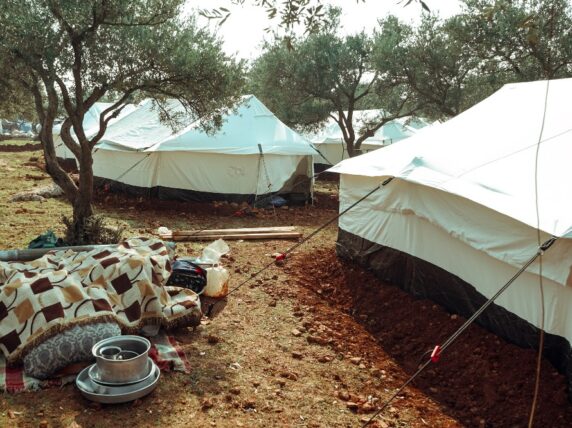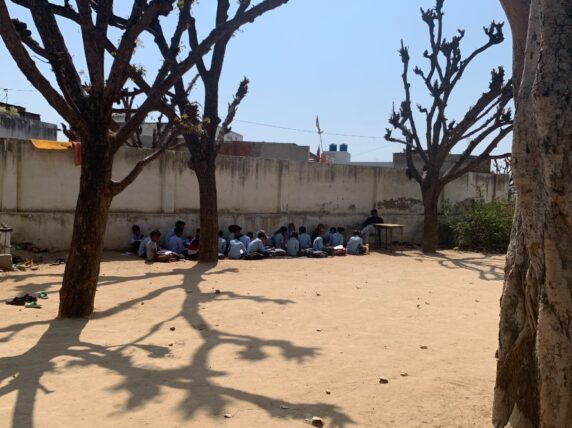How can civil society shape a better future from the Covid-19 crisis?
The Covid-19 pandemic has revealed fundamental cracks in the global system.
It has brought inequality within and between countries into sharp relief, and severely tested our resilience as individuals, nations and as an international community.
We won’t just snap back into business as usual once the pandemic is contained. Civil society will not be left unchanged.
Right now, civil society organisations (CSOs) are playing a critical role supporting the most vulnerable and holding governments to account as they constrain civil liberties to contain the virus. But we also need to look beyond the many risks that Covid-19 presents and help shape what emerges.
The Royal Society of Art and Science (RSA) describes three elements that cement change after a major crisis:
- a reason for the change existed before the crisis
- the crisis reinforces that case for change
- political alliances and practical innovations that can kick into action as the crisis abates.
We need to understand where these three elements are present to help civil society play its role in cementing necessary change. I would suggest that there are at least four.
The imperative for local power
There is already a massive case for shifting the power from northern INGOs to CSOs in the global south. Not only is it right that local people make decisions about their own future, but it’s also more effective in delivering sustainable outcomes. Community actions and local innovations were critical to responding to avian flu and the Ebola outbreak in West Africa.
The crisis has reinforced this imperative: CSOs embedded in local communities have direct access to vulnerable groups, and are trusted by local communities and authorities. These organisations can get assistance to those who need it more quickly and effectively.
Grassroots organisations struggle to access finance from the UN system and cover their core running costs. At a time when they are most needed, there is a risk that these organisations are constrained by a lack of funds and government restrictions.
Subscribe to our newsletter
Our weekly email newsletter, Network News, is an indispensable weekly digest of the latest updates on funding, jobs, resources, news and learning opportunities in the international development sector.
Get Network NewsGoing forward, stronger political alliances and finance innovations are needed. INGOs are conduits for funding, can advocate for more democratic aid mechanisms that enable local funding, and show solidarity when civil liberties are abused. This change needs to happen in a collaborative way that builds local power and achieves better development outcomes in the long run.
The need for global resilience
Never has our interconnectedness been more apparent. Any response is only as good as the weakest health system. If we are to be resilient as a global community, then all countries need to have access to the basic services that underpin communities’ ability to respond to inevitable shocks that come along. This is what effective aid is about.
That means investing to tackle the root causes of problems to fix the broken systems that drive poverty and inequality. The Covid-19 pandemic could cost the global economy $1-2 trillion, whereas the World Bank suggests prevention of zoonotic disease transfer is a tiny fraction of that.
The Stern report showed climate change would cost 5% of GDP, but preventing it would only cost 1%. WWF estimates that loss of nature would cost almost $10trillion, compared to the $0.23 trillion that could be made from investing to protect it. In the same way, the crisis makes a strong case for investment in prevention: accessible public healthcare, water and sanitation, social protection and all the other Sustainable Development Goals (SDGs). A focus on the goals would help build a more resilient, sustainable global system where people can deal with further shocks and prevent a meltdown like the one we are seeing now. And that needs to happen internationally, with countries supporting each other to take on global challenges, like climate change.
Repurposing the economic system
The virus has made growing global inequality more apparent to the public. A survey from the RSA showed that only 9% of people in the UK want to go back to business as usual, highlighting new values that could underpin an economic system that serves us, rather than has us (and our planet) serve it. This is a massive opportunity for civil society, as economic change supports so many of the outcomes we are striving for.
The innovation is there. Amsterdam is using doughnut economics to rebuild their city post-virus – a bold move away from economic growth to balancing planetary and human wellbeing.
We have a chance to repurpose the economic system, if civil society can build the necessary political alliances (that were lacking following the 2007 financial crisis) and unite with other actors to make the case for transformation.
A case for learning and collaboration
Civil society has brought crucial learning and experience from previous crises to adapt and be agile to the Covid-19. In the UK, Bond members and other actors are collaborating effectively to achieve more together. In turn, Bond itself is working with other networks domestically (NCVO, ACEVO) in an unprecedented show of strength to achieve our goals. We are also working with other country networks to share and learn together to further the global response.
There are many risks from this crisis. If we put learning and new alliances at the heart of our actions going forward, we will emerge more resilient, more creative and more impactful.
When conditions in a system change to the point where it can’t cope, the system either dies or transforms. If we, as a civil society, are intentional about the system that we want and work together to imagine it, then we might get close to the transformation that we need. For me, this is an important way to honour the pain, suffering and death that Covid-19 brings through shaping a better future.
This article was put together for a collection of essays by sector leaders on the future of civil society organisations.
Find out how you can get involved in Bond’s work on shaping a policy response for a fairer, healthier world once the virus is alleviated.
Category
News & Views



